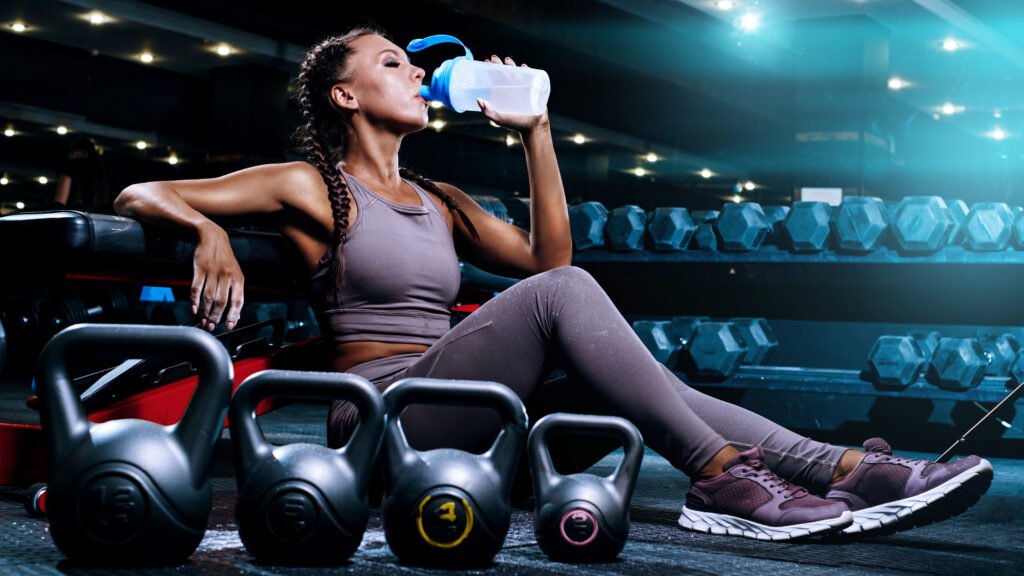Electrolyte drinks have become an integral part of hydration strategies, especially for athletes and fitness enthusiasts. These beverages are often marketed as miracle solutions for replenishing lost nutrients and maintaining energy levels. But how much of this is backed by science, and are they genuinely effective for everyone? In this article, we’ll explore the science, benefits, and potential drawbacks of electrolyte drinks to determine whether they truly deserve their hype.
What Are Electrolyte Drinks?
Electrolyte drinks are specialized beverages formulated to replace vital minerals that the body loses through sweat. These minerals, commonly referred to as electrolytes, include sodium, potassium, calcium, and magnesium. These nutrients are essential for maintaining proper hydration, supporting muscle performance, and sustaining overall health.
The popularity of these drinks spans across various sectors, from professional athletes to casual fitness enthusiasts. You can find them in diverse forms:
- Sports Drinks: Widely used during and after workouts for rehydration.
- Hydration Tablets: Convenient, compact, and easy to mix into water for an on-the-go solution.
- Electrolyte-Infused Water: A milder option for regular hydration needs.
The Key Electrolytes and Their Functions
Each electrolyte plays a unique role in ensuring the body functions efficiently:
- Sodium: Essential for maintaining fluid balance in the body and facilitating nerve and muscle function. It is particularly critical during prolonged sweating sessions.
- Potassium: A vital electrolyte for regulating heart function, aiding in muscle contractions, and balancing fluids.
- Calcium: Known for its role in bone health, calcium is equally important for muscle contraction and nerve communication.
- Magnesium: Plays a crucial part in energy production, overall nerve health, and reducing muscle fatigue.
Do Electrolyte Drinks Really Work? The Science Behind Them
Electrolyte drinks serve an important role in preventing dehydration and maintaining performance during prolonged physical activities or exposure to heat. Scientific studies have validated their benefits in various scenarios:
- Research published in the Journal of the International Society of Sports Nutrition emphasizes that electrolyte-rich beverages aid in sustaining endurance, improving hydration, and reducing recovery time for athletes.
- Another study in the Journal of Applied Physiology found that athletes who consumed electrolyte drinks experienced fewer instances of muscle cramps and showed better stamina during prolonged physical exertion.
While plain water is adequate for many daily activities, it cannot restore lost minerals like sodium or potassium. Electrolyte drinks fill this gap, ensuring the body remains balanced during demanding activities or extreme conditions.
Key Benefits of Electrolyte Drinks
Enhanced Hydration
Plain water, while essential, can dilute sodium levels when consumed in large quantities, especially after heavy sweating. This can lead to a dangerous condition called hyponatremia. Electrolyte drinks are designed to prevent this by replenishing sodium and maintaining hydration balance.Improved Physical Performance
Muscles require a steady supply of electrolytes to function efficiently. Electrolyte drinks provide the necessary minerals to prevent fatigue and reduce the risk of cramps, ensuring peak performance during workouts.Faster Recovery
After a rigorous workout, the body needs to restore lost electrolytes to recover quickly. Electrolyte drinks speed up this process, minimizing muscle soreness and preparing the body for the next session. According to Harvard Health Publishing, this is particularly crucial for endurance athletes.Prevention of Heat-Related Illnesses
During extreme heat or intense exercise, the body is at risk of heat exhaustion or heat stroke due to excessive fluid loss. Electrolyte drinks help maintain the body’s internal balance, preventing these heat-related conditions (Mayo Clinic).
The Downsides of Electrolyte Drinks
While electrolyte drinks offer numerous benefits, they are not without their drawbacks. Overuse or inappropriate consumption can lead to unintended side effects:
High Sugar Content
Many commercial electrolyte drinks are loaded with sugars to enhance taste. Regular consumption of such beverages can contribute to weight gain and increase the risk of diabetes and other metabolic conditions (American Heart Association).Excess Sodium
Electrolyte drinks with high sodium levels can be problematic for individuals with conditions like high blood pressure. If you’re monitoring your sodium intake, always check the labels carefully (WebMD).Artificial Ingredients
To improve flavor or shelf life, some brands use artificial colors, flavors, and preservatives. These ingredients may trigger allergic reactions or sensitivities in some individuals (Healthline).Unnecessary Use in Low-Intensity Activities
For those engaged in light physical activity or everyday tasks, plain water and a balanced diet are usually sufficient to maintain hydration. Overusing electrolyte drinks can unnecessarily disrupt the body’s natural balance (National Institutes of Health).
How Do Electrolyte Drinks Compare?
Not all hydration solutions are created equal, and it’s essential to choose the right one for your needs:
- Plain Water: Perfect for regular hydration, especially during light to moderate physical activities.
- Electrolyte Drinks: Ideal for intense workouts, long durations of physical exertion, or extreme heat conditions.
- Coconut Water: A natural option that is rich in potassium and low in sodium, suitable for light hydration needs.
- DIY Solutions: Homemade options like water mixed with lemon juice, a pinch of salt, and honey can provide a natural, cost-effective alternative.
When Should You Use Electrolyte Drinks?
Electrolyte drinks are most effective under specific circumstances, such as:
- High-Intensity Workouts: Activities like marathons, cycling, or intense gym training.
- Hot Weather: To replenish lost fluids and electrolytes during heat exposure.
- Illness Recovery: After dehydration caused by vomiting or diarrhea.
Choosing the Right Electrolyte Drink
To maximize the benefits, consider the following tips when selecting an electrolyte drink:
- Low Sugar Content: Opt for sugar-free or low-sugar alternatives to minimize unnecessary calorie intake.
- Balanced Electrolytes: Ensure the drink contains a mix of essential electrolytes like sodium, potassium, calcium, and magnesium.
- Natural Ingredients: Choose options with natural flavors and avoid those with synthetic additives.
- Context-Driven Use: Only use these drinks when truly needed, such as during rigorous activities, to avoid unnecessary intake.
Conclusion: Electrolyte Drinks – Do They Live Up to the Hype?
Electrolyte drinks can play a crucial role in maintaining hydration and enhancing performance during demanding physical activities. However, they are not a one-size-fits-all solution. For casual activities or everyday hydration, plain water suffices, but during intense workouts or extreme heat, these drinks can be a game-changer.
Making informed choices—focusing on low sugar, balanced electrolytes, and natural ingredients—ensures you get the best results without unnecessary downsides. By understanding when and how to use electrolyte drinks, you can support your body’s hydration needs effectively and efficiently.



